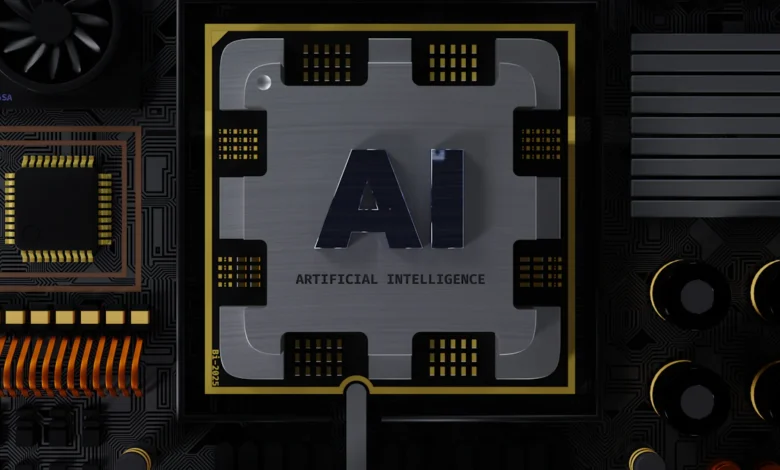AI Trends in 2024: What’s New?

AI Trends in 2024 showcase a pivotal moment in technology. AI adoption has surged to 72% among organizations, reflecting a significant shift. The global AI market is projected to grow by 33% year over year. This rapid expansion underscores the importance of staying updated with AI advancements. AI transforms industries and daily life by enhancing efficiency and innovation. The healthcare sector exemplifies this growth, with AI usage increasing by 41.2% from 2018 to 2023. Understanding these trends equips you with insights to navigate the evolving landscape.
Emerging AI Technologies

Quantum Computing in AI
Overview of Quantum Computing
Quantum computing represents a transformative leap in computational power. Traditional computers use bits as the smallest unit of data. Quantum computers use qubits, which can exist in multiple states simultaneously. This unique capability allows quantum computers to process vast amounts of information at unprecedented speeds. Quantum computing holds the potential to solve complex problems that are currently beyond the reach of classical computers.
Impact on AI Algorithms
Quantum computing can significantly enhance AI algorithms. Quantum technology provides the computational power necessary to train and run complex AI models efficiently. AI algorithms can optimize and utilize quantum resources effectively. This symbiotic relationship between AI and quantum computing can drive both technologies forward. Quantum machine learning emerges as a groundbreaking innovation with the potential to revolutionize AI applications.
Potential Applications
Quantum computing can reshape various industries through its applications in AI. Financial institutions can use quantum algorithms for risk analysis and portfolio optimization. Healthcare can benefit from accelerated drug discovery and personalized medicine. Logistics companies can optimize supply chain operations with quantum-enhanced AI models. These applications demonstrate the transformative potential of quantum computing in AI.
AI in Edge Computing
Definition and Importance
Edge computing refers to processing data closer to the source rather than relying on centralized cloud servers. This approach reduces latency and improves response times. AI in edge computing enables real-time data processing and decision-making. This capability is crucial for applications that require immediate responses, such as autonomous vehicles and industrial automation.
Benefits for Real-time Processing
AI in edge computing offers several benefits for real-time processing. Local data processing reduces the need for constant data transmission to cloud servers. This reduction leads to lower bandwidth usage and faster response times. Edge AI systems can operate independently, ensuring continuous functionality even without internet connectivity. These advantages make edge computing an essential component of modern AI trends.
Use Cases in Various Industries
AI in edge computing finds applications across diverse industries. In healthcare, wearable devices can monitor patient vitals and provide instant feedback. Manufacturing facilities can use edge AI for predictive maintenance and quality control. Retail stores can enhance customer experiences with personalized recommendations and efficient inventory management. These use cases highlight the versatility and impact of AI in edge computing.
AI in Healthcare

Personalized Medicine
Role of AI in Drug Discovery
AI revolutionizes drug discovery. Researchers use AI to analyze vast datasets. AI identifies potential drug candidates faster than traditional methods. This efficiency accelerates the development of new treatments. AI Trends in 2024 emphasize this shift towards rapid drug discovery. Pharmaceutical companies benefit from reduced costs and timeframes. AI-driven drug discovery enhances treatment efficacy and reduces adverse effects. Case Studies: AI in Personalized Medicine shows promising outcomes in oncology.
AI-driven Diagnostics
AI transforms diagnostic processes. Medical professionals use AI to interpret medical images. AI models analyze X-rays, MRIs, and CT scans with high accuracy. Early disease detection becomes possible through AI. Healthcare providers deliver timely interventions. AI-driven diagnostics improve patient outcomes significantly. AI Trends highlight the growing reliance on AI for accurate diagnoses. The healthcare sector experiences a paradigm shift with AI integration.
Patient-specific Treatment Plans
AI personalizes treatment plans. Doctors use AI to tailor therapies to individual patients. AI analyzes patient data to recommend specific treatments. Personalized medicine improves treatment success rates. Patients receive care that suits their unique needs. AI Trends in healthcare focus on patient-centric approaches. AI empowers healthcare providers to offer customized solutions. This personalization enhances patient satisfaction and health outcomes.
AI for Mental Health
AI-based Therapy Tools
AI supports mental health therapy. Developers create AI-based tools for therapeutic interventions. These tools provide accessible mental health support. AI applications offer cognitive behavioral therapy and mindfulness exercises. Users engage with AI-driven platforms for mental health improvement. AI Trends in 2024 emphasize mental health accessibility. AI-based therapy tools bridge gaps in mental health care.
Monitoring and Predictive Analysis
AI monitors mental health conditions. AI systems track user behavior and activity patterns. AI identifies signs of mental health issues early. Predictive analysis helps in proactive mental health management. Healthcare providers use AI to offer timely interventions. AI Trends focus on early detection and prevention. AI enhances mental health care by providing continuous monitoring.
Ethical Considerations
AI raises ethical considerations in mental health. Developers address concerns about privacy and data security. AI systems must ensure user confidentiality. Ethical AI practices promote trust in mental health applications. AI Trends in 2024 highlight the importance of ethics. Developers prioritize transparency and fairness in AI tools. Ethical considerations guide the responsible use of AI in mental health.
Ethical and Regulatory Trends
AI Ethics and Bias
Addressing Algorithmic Bias
Algorithmic bias presents a significant challenge in AI systems. Developers must identify and correct biases in AI algorithms. Bias can lead to unfair outcomes in decision-making processes. Ensuring unbiased AI requires diverse and representative data sets. Regular audits and evaluations help maintain fairness. Developers should prioritize ethical guidelines in AI development.
Ensuring Fairness and Transparency
Fairness and transparency are crucial in AI applications. Transparent AI systems allow users to understand decision-making processes. Clear explanations build trust between users and AI technologies. Fairness ensures that AI systems do not discriminate against individuals or groups. Developers should implement mechanisms for accountability. Ethical AI practices promote equitable treatment for all users.
Case Studies and Examples
Several case studies highlight the importance of addressing bias in AI. A notable example involves facial recognition technology. Studies have shown disparities in accuracy across different demographics. Companies have taken steps to improve algorithmic fairness. Another example is AI in hiring processes. Some AI systems have exhibited gender bias in candidate selection. Organizations have revised AI models to ensure equitable hiring practices.
Regulatory Developments
Global AI Policies
Global AI policies shape the development and deployment of AI technologies. The AI Act in Europe aims to foster trustworthy AI. This legislation emphasizes fundamental rights, safety, and ethical principles. European policies address risks associated with powerful AI models. These regulations position Europe as a global leader in AI governance.
Compliance and Standards
Compliance with AI regulations ensures responsible AI usage. Companies must adhere to established standards and guidelines. Regulatory bodies develop frameworks for ethical AI deployment. Compliance helps organizations avoid legal complications. Adhering to standards promotes public trust in AI technologies. Companies should stay informed about evolving regulatory landscapes.
Impact on AI Innovation
Regulatory developments impact AI innovation significantly. Regulations can drive advancements by setting ethical benchmarks. Companies innovate within established ethical frameworks. Compliance encourages responsible AI research and development. Regulations also address concerns related to data privacy and security. Ethical guidelines guide the trajectory of AI advancements.
AI trends in 2024 reveal transformative advancements. Quantum computing and edge AI redefine industries. Personalized medicine and AI-driven diagnostics revolutionize healthcare. Ethical considerations ensure responsible AI use. Engage with AI developments to stay informed. Ethical AI practices address concerns about bias and accountability. Transparent regulations guide AI innovation. The future of AI holds immense potential. Embrace these changes to harness AI’s benefits.


